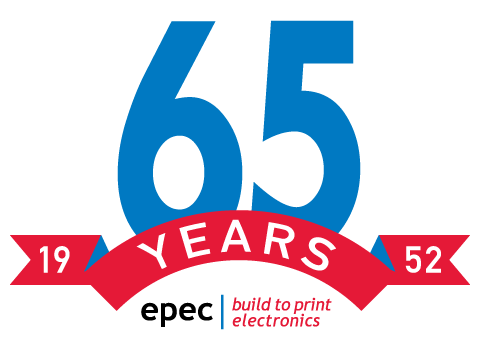
Epec Celebrating 65 Years of Manufacturing Excellence
Release Date:
[January 11, 2017: New Bedford, MA] This January marks a major milestone for Epec, LLC as they celebrate 65 years of manufacturing excellence. As the oldest printed circuit board company in North America, Epec demonstrates why they are one of the top industry leaders in custom build to print electronics.

Over the past 65 years, Epec has had numerous achievements including having manufactured printed circuit boards for the Apollo 11 space flight that landed the first humans, Neil Armstrong and Edwin "Buzz" Aldrin, Jr., on Earth's Moon.
"We are excited to have reached another milestone here at Epec. Our customers and employees across the world are the reason why we have been able to be successful for so many years" said Ed McMahon, CEO of Epec.
Another accomplishment under McMahon's leadership was the acquisition of over 16 distressed electronic manufacturing companies from 1999 – 2016. Epec's initiative on new technologies and cloud computing made the transitioning of the acquisitions from one system to another a seamless process.
New products based on Epec's 65 years of history with PCBs will continue to help them grow. While printed circuits boards are still a large part of the business, Epec moved into other PCB based products in 2005 to help offset the decline of PCBs in North America. Today, these new products represent 40% of the $50 million in revenue.
New regulations passed by the Department of Energy (DOE) in regards to standards for Commercial Refrigeration Equipment is going to make 2017 a real game changer for leading OEMs. EC Fans & Drives, an Epec company, recently developed a new line of energy efficient EC motors that meet the new DOE regulation. It will be an exciting time for Epec as the market reacts to the new innovative EC motors.
As the New Year begins, so does another chapter in Epec's history. What will not change in 2017 is Epec's dedication and determination to put customers first. Customers expect greatness. This is done by having dedicated employees throughout the world that understand and live Epec's core values and what those values really mean to their customers.








